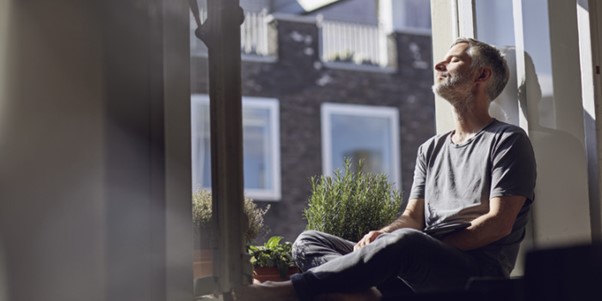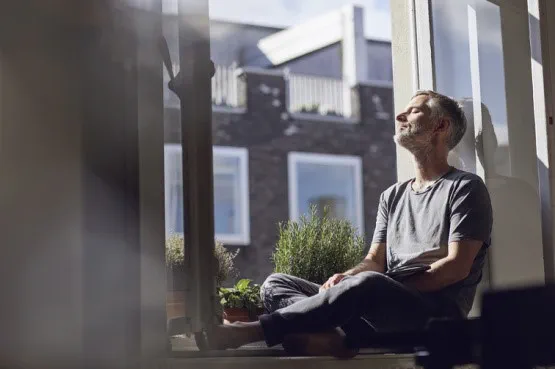Panic attacks – symptoms and treatment
We all have feelings of panic or fear at one time or another. But panic attacks can be distressing. They’re also common, and up to 1 in 3 people experience a panic attack at some point in their life. Here, I explain what a panic attack is, what the signs of a panic attack are, and how to deal with them.

What is a panic attack?
A panic attack is a period of intense fear or overwhelming mental and physical feelings.
Most panic attacks last between 5 and 20 minutes. You might have a panic attack just once, or repeatedly over time. If you have regular panic attacks that don’t have an obvious trigger, you may have panic disorder. This means you might worry about having other panic attacks and try to avoid situations that could cause them.What are the symptoms of a panic attack?
The physical and mental symptoms of a panic attack can vary from person to person. Some common signs of a panic attack include:
- being short of breath or feeling like you’re choking
- having a rapid heartbeat
- feeling faint, lightheaded, or dizzy
- trembling or shaking
- feeling sick
- feeling hot or cold
- feeling numbness in your skin
- feeing afraid that you’re going to die
- chest pain
Although these symptoms might be worrying, they aren’t dangerous. They’re also unlikely to cause you any lasting physical harm.
What triggers panic attacks?
It’s not always obvious what causes a panic attack. They can be triggered by situations that cause anxiety. Or they can be caused by a major negative event in your life. For some people panic attacks seem to have no trigger.
If you have anxiety or depression you might have panic attacks.
How do you stop or manage panic attacks?
There are a few things you can try to stop or manage panic attacks.
1. Talk to someone about it
It might help to talk to a trusted friend or family member about your worries. You could also talk to your GP or a mental health professional.There are specialist charities and support groups who might be able to help too.
2. Live a healthy lifestyle
Exercise improves your mood and reduces anxiety. A healthy diet and a good night’s sleep could also help manage your anxiety, which might help to prevent a panic attack happening.
3. Try breathing and relaxation techniques
If you’re feeling anxious, try to lower your stress levels and take time out to relax. Yoga, Tai chi, and mindfulness can help you to control your thoughts and feel calmer. Practicing calming breathing exercises might also be helpful if you feel short of breath during a panic attack.
Distraction techniques could also help stop the negative thoughts that can lead to a panic attack. Try to focus on something in your surroundings, or something pleasant, to distract yourself until the feelings pass.
4. Identify triggers
If something specific triggers your panic attacks, try to keep a diary of these situations and feelings. This can also help you to avoid them in future, and keep track of your progress.
How do you treat panic attacks?
If you regularly have panic attacks, your GP may recommend taking medicine for the anxiety that causes the attacks. This could involve taking antidepressants to improve your mood.
Your GP may refer you to psychological therapy, such as cognitive behavioural therapy (CBT). This type of treatment can help you to control and reduce your panic attacks.
Where can you get help for panic attacks?
Don’t suffer in silence. There are also organisations that can give you advice or support.
If you need help now, you can:
- call the Samaritans free and confidential helpline: 116 123 (UK and ROI)
- or visit Mind’s website and click the ‘get help now’ option. They also have a helpline.
If you need immediate help or are worried about someone, call the emergency services.
If you’re worried about your mental health, our direct access service aims to provide you with the advice, support and treatment you need as quickly as possible. You’ll be able to get mental health advice and support usually without the need for a GP referral. Learn more today.
-
Sources Sources
- Anxiety and panic attacks. Mind. Mind.org.uk, published February 2021
- Panic disorders – epidemiology. BMJ Best Practice. bestpractice.bmj.com, last reviewed April 2025
- Panic disorders – diagnosis criteria. BMJ Best Practice. bestpractice.bmj.com, last reviewed April 2025
- Panic attacks and panic disorder. MSD Manual. Msdmanuals.com, last reviewed August 2023
- Panic disorder. Mental Health Foundation. Mentalhealthfoundation.org, accessed May 2025
- Panic disorders – diagnosis approach. BMJ Best Practice. bestpractice.bmj.com, last reviewed April 2025
- Anxiety and panic attacks – self care. Mind. Mind.org.uk, published February 2021
- Anxiety and panic attacks – treatment. Mind. mind.org.uk, published February 2021
- Zheng S, Kim C, Lal S, et al. The effects of twelve weeks of tai chi practice on anxiety in stressed but healthy people compared to exercise and wait-list groups-a randomized controlled trial. J Clin Psychol 2018; 74(1):83-92
- Panic attacks. Mental Health Foundation. Mentalhealth.org.uk, last updated 15 February 2022
About our health information
At Bupa we produce a wealth of free health information for you and your family. This is because we believe that trustworthy information is essential in helping you make better decisions about your health and wellbeing.
Our information has been awarded the PIF TICK for trustworthy health information. It also follows the principles of the The Information Standard.

More mental health and wellbeing articles
Did you find our advice helpful?
We’d love to hear what you think. Our short survey takes just a few minutes to complete and helps us to keep improving our healthy lifestyle articles.
Legal disclaimer
This information was published by Bupa's Health Content Team and is based on reputable sources of medical evidence. It has been reviewed by appropriate medical or clinical professionals and deemed accurate on the date of review. Photos are only for illustrative purposes and do not reflect every presentation of a condition.
Any information about a treatment or procedure is generic, and does not necessarily describe that treatment or procedure as delivered by Bupa or its associated providers.
The information contained on this page and in any third party websites referred to on this page is not intended nor implied to be a substitute for professional medical advice nor is it intended to be for medical diagnosis or treatment. Third party websites are not owned or controlled by Bupa and any individual may be able to access and post messages on them. Bupa is not responsible for the content or availability of these third party websites. We do not accept advertising on this page.







